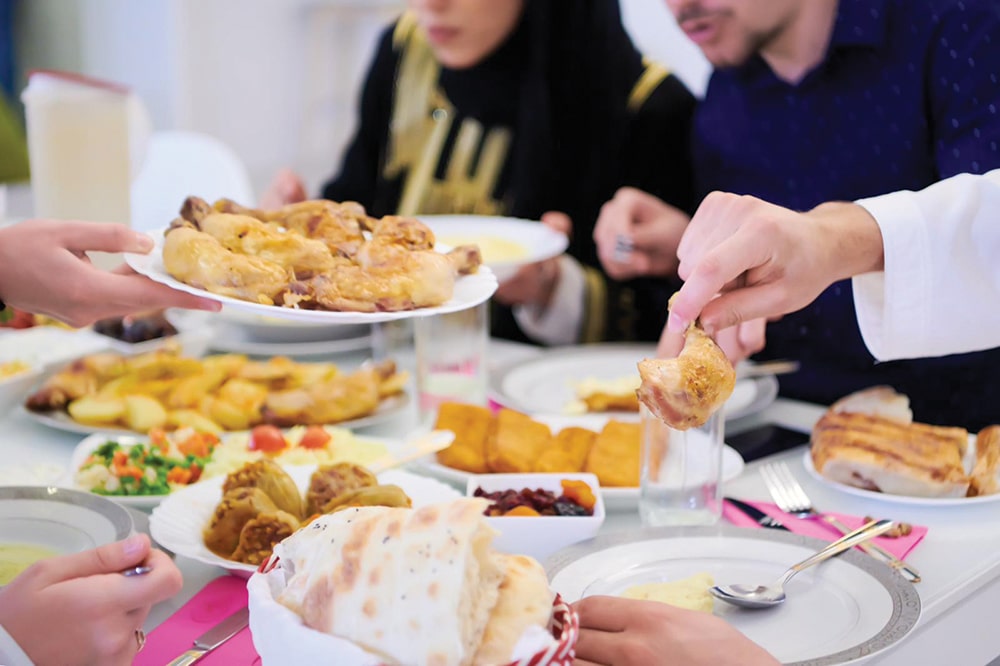By Ghadeer Ghloum
KUWAIT: After Muslims from all around the globe fast for an entire month during the holy month of Ramadan, they come together to celebrate their adherence and obedience to Allah’s obligations on Eid Al-Fitr. The ways of celebrating Eid differs lightly from one culture to another. Muslims in Kuwait usually celebrate Eid by wearing the best clothes they have and visiting family and friends to enjoy a massive feast during the day, where different kinds of the best food are served.
 Rizwan Shaikh
Rizwan ShaikhLike their elders, children also await Eid and enjoy it. During Eid, kids usually receive money from their elders as a gift to make them happy and mark the importance of this celebration in their minds. Kuwait Times interviewed some Muslim expats to get a closer look at the way they celebrate Eid in Kuwait while being away from their family due to various circumstances.
Mohammad, a Nigerian man in his early twenties, told Kuwait Times: “On Eid, we make plans to go out with friends, such as booking a trip to Failaka Island for the day or visit other places. We also visit people who are from the same country we come from and spend Eid with them.” Although Mohammad gathers with his friends to share the joy of Eid in Kuwait, it is not as enjoyable as it is with his family. “I wouldn’t say that we do not really feel the joy, because there are still people to meet up with during Eid. So, yes, I can say that I do feel it a bit. But of course, it’s not as it is back home,” he said.
Menna, an Egyptian woman also in her early twenties, said: “I used to enjoy Eid in Egypt way more than I do in Kuwait. In Kuwait there is not much to do because it is only my parents and I here. We do not have any other family members here. Therefore, our Eid celebration is very simple — we basically go out for lunch and come back home. I’d rather spend Eid in my country if circumstances were easy.”
Rizwan Shaikh, an Indian senior accounting system specialist, also misses his relatives and hopes to celebrate Eid with them here, even though he enjoys the company of his wife and kids in Kuwait. “As expats, we miss our family in India. We wish we could bring them here for Eid, specifically our parents, but unfortunately Kuwait stopped issuing visas, even for families. I only have my immediate family here. We do not have other relatives in Kuwait,” he said.
Despite being away from his relatives in India, Rizwan tries to have fun. “We spend our Eid days with family and friends. Usually, we dine out with friends. As for activities, we arrange a picnic and get together. This Eid we have plans to visit Jaber Al-Ahmad Cultural Center and Khairan resort,” he said.
Reem, a middle-aged Lebanese woman, said that her siblings and herself were born, raised and married in Kuwait. A large number of her relatives are also in Kuwait, so she enjoys celebrating Eid in Kuwait more than she does in her home country. She is used to Kuwait and feels closer to the people she knows in Kuwait. Reem also highlighted the issue of forcing expats aged over 60 to leave. “Everyone used to come to my parents’ house, as they are the elders among our family members who live in Kuwait. However, after the law forced people over 60 to leave, my parents had to go back to Lebanon, so, we no longer gather in one place,” she said.
Reem added in order to meet at one place, they book a chalet or a family table at a restaurant so they can enjoy their Eid feast. When it comes to visiting each other’s homes, Reem said they divide their visits among themselves. Only a certain number of families can visit one house, based on the capacity of that house. According to Reem, the visits usually start with visiting the elder relative’s home, then to the younger ones.











